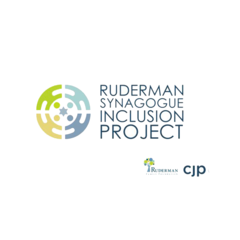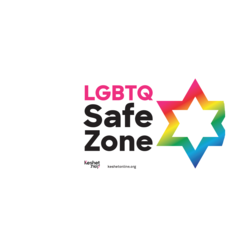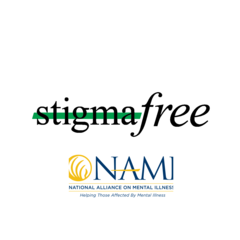Yom Kippur 2018
It was an honor to be asked to be part of this Yom Kippur service.
To say that I was hesitant to accept the invitation is to seriously understate my hesitancy.
I was hesitant because my Jewish journey is anything but linear. It is one of jigs and jogs, zigs and zags.
I was hesitant because it is anything but over. The sands were shifting under me as I thought about these remarks and, indeed, are shifting even in this moment. My journey is a work in progress.
I was hesitant because I was not sure I wanted to be here at all today. There were years I went sailing on Rosh Hashanah or Yom Kippur and found that a truly spiritual experience. The sea’s winds and waves are one of the places I go to find sanctuary.
And I was hesitant because for all my familiarity with public speaking, private speaking in public is a totally different, more challenging, enterprise. Can I speak the truth (or at least my truth), given how important this community is to my family and me? What if I disappoint? What if I offend? Is it not better to be safe than sorry?
I grew up as the first-born son of a deeply religious father. His family owned a kosher butcher shop in Berlin. My mother and her family were assimilated until Hitler reminded her and them that they were Jewish. They both managed to get out of Germany – late, my dad in ’37, my mother in ’39 after Kristaalnacht. And they embraced Judaism as a foundational element of embracing each other.
My Jewish education, the Jewish calendar, and religious practices were the defining elements of my upbringing.
We kept kosher, observed Shabbat (which meant going to services and no writing, driving, television, or even playing piano.) In my teens as I got interested in Saturday evenings with my friends, I developed amazing expertise at finding the first three stars in the late afternoon sky that signaled time for havdalah. Before heading off for Kol Nidre services, my father would prepare strips of toilet paper so he wouldn’t have to tear it for the 24 hours to follow. I put on tefillin until well into my teens. My parents bought a sukkah when I was about 7, extended an open invitation to the entire congregation, easily 150 hungry souls strong, and my mother cooked and baked for weeks in advance of Sukkot. My sister reminded me that we had a huge freezer in the basement specifically for this annual kosher food fest.
The practice of Judaism even shaped my acting out. I sneaked up to my room to write and do my homework after Shabbat lunch. After keeping kosher through college and most of the summer beyond, a cheeseburger – bacon bleu cheese burger – medium rare - became my symbol of liberation.
Cathy and I, in turn, made sure to have Shabbat dinner with our two boys every week. We set up my parents’ sukkah, now more than 60 years old. We host seders, and today, with our boys grown and settled in Boston, even if we don’t have weekly Shabbat dinners, we make it a point to periodically have the family over for challah French Toast. We break the Yom Kippur fast in our home, even when some of us don’t fast. I love the in-gathering of our two sons, the wonderful young women they’ve brought into our lives, and now two amazing grandchildren, and Shabbat and holidays, as they were when I was growing up, are special family moments.
As our boys grew, we began to search for a community within which to raise our family.
We started at Temple Emunah. We went there for a high holiday service and were treated to a sermon I had heard often as I was growing up, chastising “once a year” Jews. We hardly found this rebuke and disdain for anything but traditional and orthodox practices to be inviting and engaging.
We then invited a group of like-situated couples, unaffiliated and in search of a family-centric community, into our living room to explore creating a chavurah. This, too, missed the mark, first because of the overwhelming challenge of providing a Jewish education for our children, and then because of my greater exposure to matters religious, there were leadership expectations of me. I had neither the skill nor inclination to assume such a role and, besides, I was looking for a Rabbi, not to be a Rabbi.
We then came to Temple Isaiah and had a wonderful talk with Rabbi Yales. I screwed up my courage and told him I was not sure about God and was quite sure I was not comfortable with anthropomorphic, God-centric prayers and services.
He assured us that one need not believe in God to be Jewish, just struggle with God, and pointed to the statue of Jacob wrestling with the angel outside the chapels at Brandeis, my alma mater. He then told us a story we’ve heard often since about Moishe, an observant Jew and his friend Shmuel, an atheist. Moishe asks his friend why, as an atheist, he comes to services every week. Answered Shmuel,
“You come to be with God; I come to be with you.”
Good answer.
Joining this community was a great move.
I want to acknowledge you, Rabbi Jaffe. You are a huge intellectual and spiritual force, and your kindness and big heart are even more wonderful. We were so touched when you broke away from your rabbinical conference in Los Angeles to come to my mother-in-law Molly’s funeral. You have added so much love and warmth to special occasions, ours, our children’s and now our grandchildren’s.
Cantor Doob and Rob Humphreyville, your music and musical souls touch me deeply. Music, in addition to the ocean, is where I find sanctuary. I know to anticipate a lump in my throat and tears in my eyes as you lead us.
Rabbi Pearlman, it was so perfect that last night you invited us to engage in, indeed to invite and to cherish, difficult conversations.
So let’s have some.
Being an observant family – much more so than nearly all the other households - distinguished the Kaufmans in Hollis Hills. It drew a circle around us, held us to one another and provided great strength and comfort.
That circle was pierced by Mrs. Aronson, the wife of my beloved high school principal and English teacher and herself the wonderful brilliance behind our high school theatre program. She pointed out the downside to living within that kosher circle, the fact that most everyone else was kept outside. She wondered how you could be part of a community if you can’t break bread with those around you.
I’ve been wondering ever since.
By extension, how are we to be and to hold the idea of being the chosen people, when the attendant notion is you’re not! Or at least Jews can be perceived as coming from the place of “we’re it, you’re not,” and that doesn’t always serve us so well.
Then there’s God.
Last week’s Rosh Hashanah service started with the choir leading us in Ritzei in perfect harmony which, in turn, was followed by some beautiful poetry that had me reduced to – elevated to – tears.
Precious above all is the soul within me.
A spark of childhood innocence; curious, hopeful, loving and good.
Whatever I’ve done, wherever I’ve gone wrong, however I’ve been hurt, I know its light still shines.
But then “May I return and reconnect with the part of me that belongs to You…”
And that’s where, true confession, I went south.
When I hear words like “ask God for,” “God commands,” “God blesses,” “God forgives,” “God loves,” “Your throne,” “You record and remember,” and I say “really?”
For me, these are all non-sequiturs.
In my world, God is a word, a concept we use as a surrogate for answers to unanswerable questions. Focus on those questions is as moving as it is important, but, for me, speaking about God as a being – the language and conversation that permeates our liturgy and that we’ve heard scores of time in this service as in every service - is a distraction. It takes me away from the spiritual questions. It takes me away, too, from what John Kennedy, I think wisely, reminded us is the real work that must truly be our own.
So can I be Jewish – a member of the tribe that gave the world monotheism - when theism, mono or otherwise, feels to be a distraction and disempowering of “we the people?”
And then there’s Israel.
I hate that Jews the world over are bitterly divided by the politics of today’s Israeli government and by the domination in Israel of the religious right. (The echoes of what’s so frightening about this country today are all-too obvious.)
For me the law the Knesset passed this past July affirming Israel as a Jewish state, even at the expense of Israel as a democracy, is a gross violation of both my democratic and my Jewish values. I feel for those disenfranchised by contemporary Israeli policies – Palestinians, Arabs, non-orthodox Jews. I fear for the future of Israel. I was one year old when Israel was born. Will it survive not only its hostile neighbors but the internal contradictions playing out on the Israeli stage today?
Let me be clear - this is intensely personal, not just political.
There is someone in this congregation who I consider to be a wonderful, intelligent man, and who was a close friend. He has let me know in many ways, in no uncertain terms, and even in a loud, angry voice, that I have disappointed him, failed him because I have not spoken out early and often in defense of Israel in the face of those who would criticize her on campuses, in corporate boardrooms, and in the halls of government. I can happily defend much, but I cannot defend what strikes me as immoral, impolitic and indefensible. Rabbi Pearlman you spoke eloquently last night about the dangers of seeing the “other” as wrong, stupid, maybe even evil. I forgive those who see me in these ways because we cannot agree on everything, and I, in turn, ask forgiveness of any I have disappointed or failed.
So given these major sites of ambivalence, discomfort and uncertainty on my Jewish journey, why am I here?
Why do we annually face a membership bill that is much higher than we can reasonably pay, and come back any way?
Let me be very clear: Cathy and I love what being part of this Jewish community, Jewish family, brings to our family. We love this sanctuary but, more, we love that we find sanctuary in this community.
This morning’s service included a beautiful new musical rendition of Elohai. I was moved and inspired anew by this temple’s musical offerings and musical talent.
And, although this is hardly the first time for us at a service with the Kolin Torah, it is, for me, like so many here, a powerful connection to generations and places lost. It is, too, empowering of us as the link that we are in the chain of life, Jewish life in particular, across time and across the globe. Our service with the Kolin Torah alone would justify being a proud member of the Temple Isaiah family.
But there’s so much more.
I was deeply touched when, on the birth of our first grandson, our son Noah told us he wanted to give his first-born my father’s Hebrew name, Yitzhak. Doing this was his idea and tells us everything there is to know about who he is and what his values are. Noah, by the way, takes his name from Parshat Noach which was my father’s Bar Mitzvah portion. We owe much to my dad for Noah’s name, much to Temple Isaiah for Kenneth’s closest life-long friends, and much to Noah’s and Kenneth’s experiences here for who they are.
Cathy and I love that that oldest grandson, Ethan Lyle, Eitan Yitzhak ben Noach v Hatsy, is now in Abbe’s class, the same class that was so important to Noah and Kenneth a generation ago. We smile in our hearts when we hear things that hint and echo his place in the chain; things like when asked why you put out milk and cookies for Santa, he answered “it’s a mitzvah.” Or his declaring when sweeping up the pine needles left by the now-removed Christmas tree that he was “doing a mitzvah.”
I love that we preach and teach – and practice - the gospels of social and economic justice, tikkun olam, and the importance of the search for knowledge and wisdom.
I love that, in sermons and in our programming, we are invited to be as big as we can be, and then to be bigger yet in coming together.
The music here feeds our souls.
And, on the subject of feeding, hooray for the bagels and lox at Brotherhood breakfasts, and a shout out to Bruce Lynn for countless elegant community meals. Eating is an integral part of Jewish life and, at Temple Isaiah, rather than dividing us as I heard in high school, it brings us together. A cheeseburger may, long ago, have become a symbol of liberation, but bagel and lox is homecoming.
One of my earliest childhood memories is walking hand in hand with my father on the way to services every Shabbat and holiday. Like Moishe, he went to be with God. Like Shmuel, I went to be with him.
Now, in my 72nd year, I’m not sure why you’re here. But I am sure that I’m here to be with you.
G’mar chatimah tovah.





